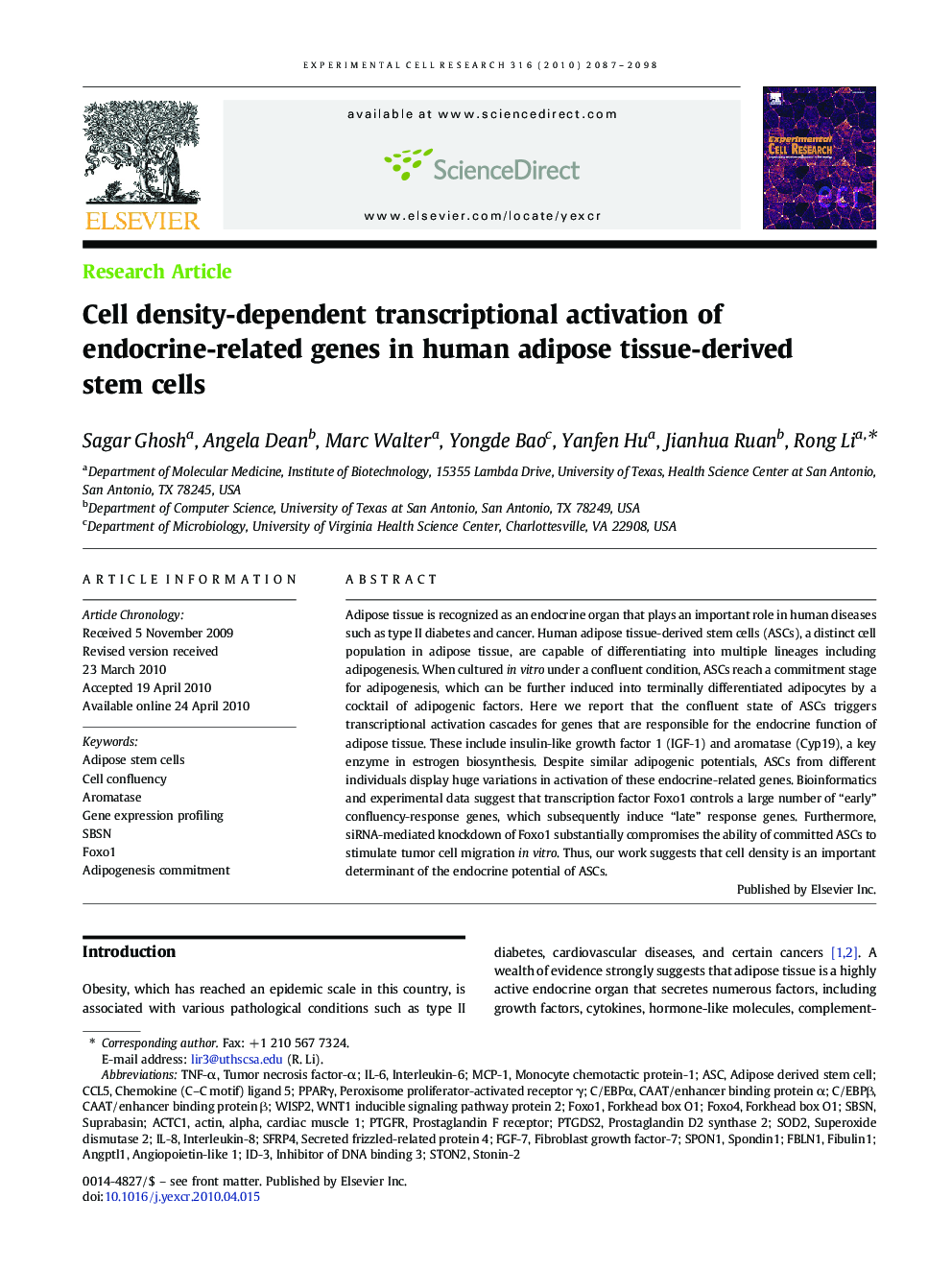| Article ID | Journal | Published Year | Pages | File Type |
|---|---|---|---|---|
| 2132079 | Experimental Cell Research | 2010 | 12 Pages |
Adipose tissue is recognized as an endocrine organ that plays an important role in human diseases such as type II diabetes and cancer. Human adipose tissue-derived stem cells (ASCs), a distinct cell population in adipose tissue, are capable of differentiating into multiple lineages including adipogenesis. When cultured in vitro under a confluent condition, ASCs reach a commitment stage for adipogenesis, which can be further induced into terminally differentiated adipocytes by a cocktail of adipogenic factors. Here we report that the confluent state of ASCs triggers transcriptional activation cascades for genes that are responsible for the endocrine function of adipose tissue. These include insulin-like growth factor 1 (IGF-1) and aromatase (Cyp19), a key enzyme in estrogen biosynthesis. Despite similar adipogenic potentials, ASCs from different individuals display huge variations in activation of these endocrine-related genes. Bioinformatics and experimental data suggest that transcription factor Foxo1 controls a large number of “early” confluency-response genes, which subsequently induce “late” response genes. Furthermore, siRNA-mediated knockdown of Foxo1 substantially compromises the ability of committed ASCs to stimulate tumor cell migration in vitro. Thus, our work suggests that cell density is an important determinant of the endocrine potential of ASCs.
